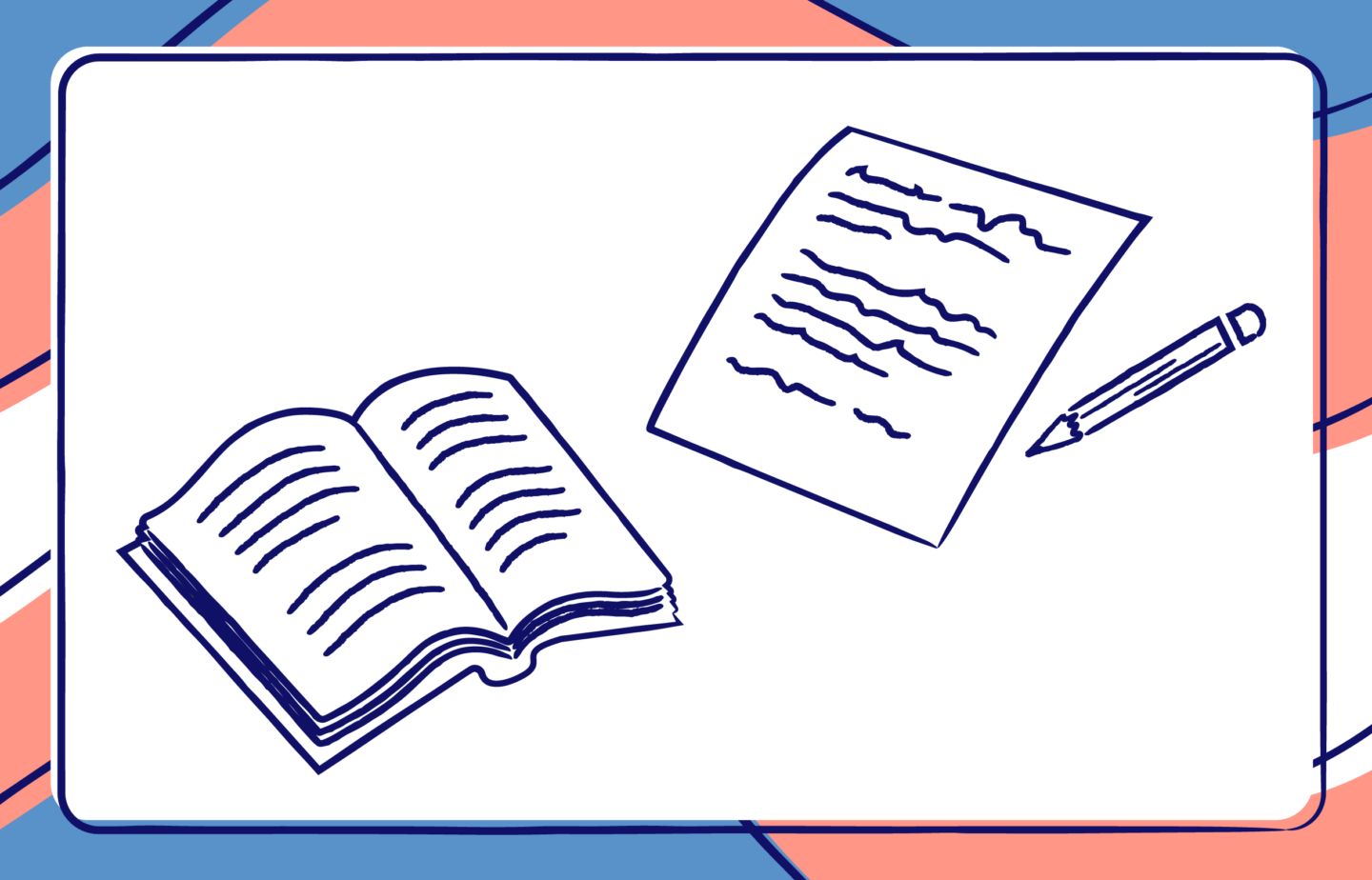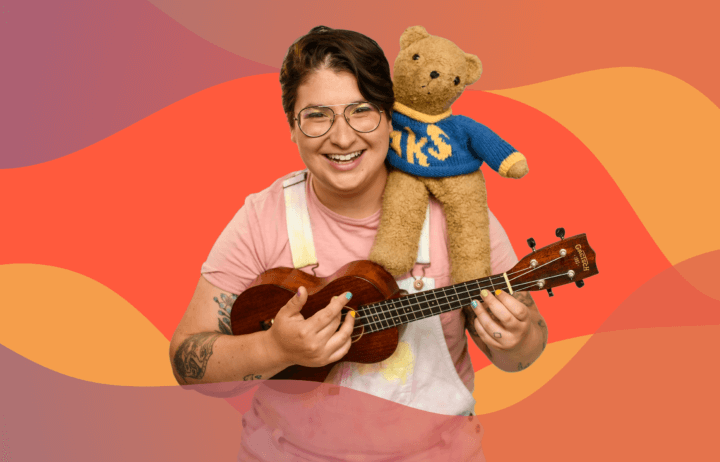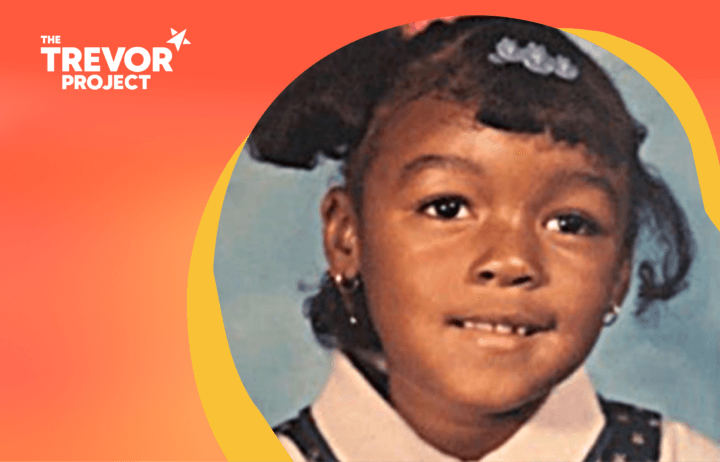At The Trevor Project, we may be an all-remote workforce, but we understand the importance of building community. Our affinity groups allow for members of our teams with similar experiences and identities to share stories, find support, and forge solidarity. We asked some of the members of our #TransatTrevor channel what Trans Day of Visibility meant to them; we’re reminded that for Trevor staff, our mission is personal. Many of us are just LGBTQ+ young people who grew up and are here because we are trying to build the brighter future for the next generation that we ourselves dreamed of as kids.
Here are some of the responses from our community:
What do you feel people don’t understand about the trans experience? What misconceptions are out there that you want to clear up?
I think people don’t understand that we don’t want to make everything all about our transness all the time but sometimes it feels like if we don’t there is erasure that happens. Being nonbinary, if I don’t talk about it I am never seen. I am so much more than just being trans.
We’re really not walking around all day looking for cis people to make “trans mistakes”. We can very much tell the difference between an honest mess-up and purposeful misgendering. I’d way rather people just do their best than insist on getting it right all the time.
Often, people have a very limited understanding or belief about “the trans experience” and that if someone identifies as transgender, it means they identify with “the opposite sex/gender than the one they were identified with at birth.” As someone who is nonbinary, when I tell people that I identify as transgender, they automatically assume several things: I’m “switching from female to male” and often they assume I am getting “all the surgeries” and taking hormones to facilitate physical changes. While that is the experience of some transgender people, it is not the experience of all. Even those who are transitioning from male-to-female or female-to-male are not doing “all the things” that could be done physically/externally. Transition can look many different ways.
I think for me it’s that I am mostly interested in being an average guy and not like an exceptionally radical kind of person (or viewed that way at least). So I think a big thing is that there are a ton of different kinds of trans people and a lot of us just want to be normal and boring.
Why is Trans Day of Visibility so important?
It is important because erasure happens all the time and we need these spaces to acknowledge the pain and trauma but also celebrate the joy.
We lost so many of our elders to the combination of “terrified hiding in stealth”, access to care, and the AIDS crisis. Seeing that we are here and that we have always been here, and we are alive, diverse, and unwilling to hide again creates the space that enables people to make that first call to the gender clinic.
I think the greatest barrier to being accepted in our society is for us to be visible. When people don’t understand something, it’s often because they don’t have [positive or any] experience with that thing, no way to relate or connect to it and therefore normalize it within their life and community. When things are new, it’s easy for them to be feared (fear of the unknown). And often in our society, fear is considered weakness, so it is often masked by anger and hate. Years ago, it was the struggle for the gay and lesbian community to become visible, to become commonplace, and to allow the general public to realize that they (we) aren’t actually a threat or something to be feared. Over time, the work we did allowed things like same-sex marriage to become legal throughout our country. While it obviously isn’t perfect, the work that was done has allowed bigger changes throughout our culture and society. And now we need to do that same consistent work to be visible and normalize the existence of trans-people. When we can reduce/eliminate the fear of the unknown, we can create a space for positive change.
Share a story about a time you felt like yourself or someone who made you feel supported or seen.
I felt like myself after top surgery and being able to wear a t-shirt for the first time without a binder.
Very very early in transition, before I had messed with my voice, learned makeup, changed pronouns, anything, basically when I still just appeared like a man in a dress, I was out at a bar with a large mixed group, and they called for the ladies to get up and sing a song, and I was grabbed by one of the women I was with, and we all closed the bar with “Sweet Caroline.” I felt awkward, afraid, and so so at home.
I think the biggest gift I receive from my friends and my community is when they correct others about my pronouns. While I am willing to advocate for myself, it’s a relief to be seen and recognized and supported that way by those around me.
Share a time you felt trans/queer joy.
I feel trans and queer joy when I get to share my truth. As a poet and an artist, I have the privilege to create spaces where I get to be my most authentic self and share that in a room full of people.
The time I got in an argument with someone over the phone because they were all, “we are looking for <DEADNAME>, <WIFE’S NAME>, please put him on the phone,” and would not believe it was me just filled me with joy.
My recent trans joy came about when watching the purple, white, yellow, and black spring flowers I planted all come into bloom (the colors of the nonbinary flag).
The first time I was in a room full of mostly trans people at an “Against Me!” show felt really magical in a way I didn’t have words for at the time. I was early in my self discovery at the time and it helped me realize that there is a community and I wasn’t the only one.


